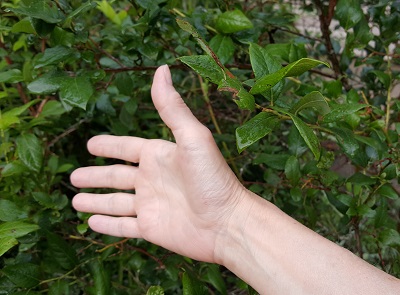If you come to me for help with opioid use disorder, I will tuck your head under my arm like a football and get ready to start slashing like Logan the Wolverine to get you evidence-based care. I have 12 hours before you start going into withdrawal. I will have to use every connection in my network and call in every favor owed. In seeking help for other people in our area, I’ve used up a lot of those favors already. I may have to hire a driver to take you to another state. I don’t have the funds for a plane.
 In my small town in rural Southwest Virginia, I could more easily get you heroin than I could get you treatment for heroin addiction.
In my small town in rural Southwest Virginia, I could more easily get you heroin than I could get you treatment for heroin addiction.
In my locale, for people with opioid use disorders, wait lists for people with low incomes are 6 months or more to be assessed for suitability for buprenorphine (one of the top two treatments for opioid use disorder known to cut death rates by half). (By new Virginia law, Suboxone, not Subutex, must be prescribed to all but pregnant women.) To my knowledge, no more than half a dozen local physicians have completed federal certification to prescribe Suboxone. Local private Suboxone clinics have shorter wait lists, but require $500 cash for the first appointment, and $180 cash per month afterwards. The price makes sense given the enormous costs to start and run such an enterprise. Locally, a common therapeutic dose of Suboxone is approximately $100 for a one-month supply.
Scarcity requires stark, either-or choices.
This is what science says to do for people with opioid use disorder and, indeed, for substance use disorders in general: get people to medical professionals to be assessed for medications.
If we, hypothetically, had a budget of $100 to spend per month on each person in our locale with opioid use disorder, as a taxpayer, I want it spent on what science says will benefit most people most of the time. While other supportive services might be helpful, science says that meager $100 is best spent on methadone or buprenorphine, not on rehab, individual or group counseling or support groups.
Getting evidence-based care for addiction should not require action-adventure movie tactics in a fantastical world of illogic, i.e. medications are reasonably priced and plentiful but access to them is denied or limited by the very government that claims the disorder they treat is a national crisis.
The opinions expressed are mine alone and do not necessarily reflect the positions of my employers, co-workers, family members or friends. This content is for informational purposes only and is not a substitute for medical or professional advice. Consult a qualified health care professional for personalized medical and professional advice.
- How to Get Help for a Loved One with Addiction in the New River Valley of Virginia
- Legislate Against Smokes and Drinks Before Opioids
- Say No to Laws That Prescribe
- Why Opioid Maintenance Does Not Replace One Addiction with Another
- Addiction or Dependence: A Life and Death Difference
- Understanding Why We Have Wait Lists for Opioid Addictions Treatment
- What the Opioid Epidemic Means in Virginia
- A Brief Guide to Evidence-Based Self-Care for Recovery from Addiction

